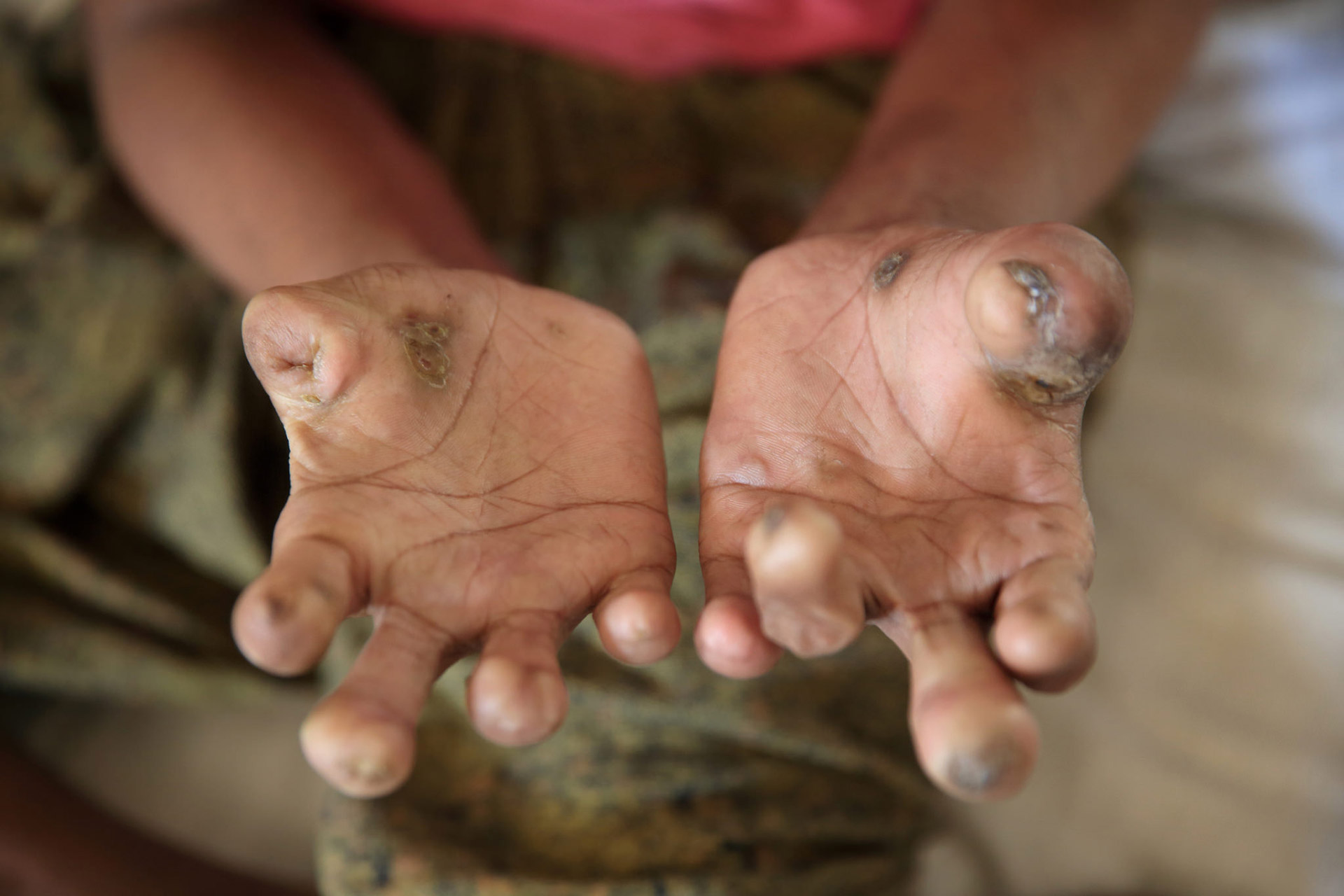What is Leprosy?
Leprosy, also called Hansen’s disease, is a long-term bacterial infection caused by Mycobacterium leprae. It mainly affects the skin, nerves, and mucous membranes. The disease spreads mainly through the air when close contacts breathe in droplets from someone infected. Rarely, it may spread through broken skin. Leprosy is classified into two types based on the number of skin patches: paucibacillary (PB) with 1 to 5 patches, and multibacillary (MB) with more than 5 patches.
You can ask your own question to a licensed healthcare provider here for free. It may take up to 7 days to get an answer. If you want a consultation in minutes, book now with Hope+ our premium and best health consultation service in Uganda.
Symptoms
- Pale or reddish patches on the skin, often with loss or reduced feeling
- Numbness or tingling in hands or feet
- Weakness in hands, feet, or eyelids
- Tender or painful nerves
- Swelling or lumps on the face or earlobes
- Painless wounds or burns on hands or feet
How is Leprosy Diagnosed?
A diagnosis is made by clinical examination and sometimes supported by lab tests. Doctors look for any of these signs:
- Pale or hypopigmented patches with clear loss of sensation
- Thickened peripheral nerves with loss of sensation or muscle weakness
- Presence of bacteria in skin smears
Other conditions that can look like leprosy:
- Birthmarks or early vitiligo (skin whitening)
- Fungal skin infections
- Molluscum contagiosum
- Nerve damage from diabetes
- Psoriasis and other skin conditions
Treatment
Leprosy is treated with a combination of antibiotics known as Multi-Drug Therapy (MDT). This treatment is given in monthly blister packs and varies by type of leprosy:
| Type | Drugs | Duration |
|---|---|---|
| Paucibacillary (PB) | Rifampicin, Dapsone, Clofazimine | 6 months |
| Multibacillary (MB) | Rifampicin, Dapsone, Clofazimine | 12 months |
Dosage for Adults:
- Rifampicin 600 mg once monthly
- Clofazimine 300 mg once monthly, plus 50 mg daily
- Dapsone 100 mg daily
Dosage for Children (10-14 years):
- Rifampicin 450 mg once monthly
- Clofazimine 150 mg once monthly, plus 50 mg daily
- Dapsone 50 mg daily
Dosage for Children under 10 years or under 40 kg:
- Rifampicin 10 mg/kg once monthly
- Clofazimine 6 mg/kg once monthly, plus 1 mg/kg daily
- Dapsone 2 mg/kg daily
For severe leprae reactions (inflammation):
- Prednisolone 40 mg once daily in the morning, for 12 weeks (PB) or 24 weeks (MB)
- Dose reduced gradually every 2–3 weeks
Important Notes:
- Patients co-infected with HIV on cotrimoxazole should avoid dapsone
- Monthly drugs are given under direct supervision to ensure they are swallowed
- Treatment longer than 12 months and steroid use should only be managed by specialists
- Leprae reactions can happen before, during or after treatment and require prompt care
Disabilities from Leprosy
Leprosy can cause nerve damage leading to physical disabilities, especially in hands, feet, and eyes. Disabilities are graded based on severity of loss of sensation or visible deformities. Managing disabilities includes:
- Resting affected limbs and using splints at night
- Daily soaking and oiling of dry skin to prevent cracking
- Using protective footwear and gloves for insensitive hands and feet
- Regular physiotherapy and rehabilitation
Eye Complications:
- Difficulty closing eyes (lagophthalmos)
- Corneal damage and ulcers
- Eye inflammation (iritis, scleritis)
Treatment involves topical antibiotics and steroids, ideally under care of an eye specialist.
Prevention
- Early diagnosis and full treatment of cases
- Screening and giving a single dose of rifampicin to contacts of leprosy patients to prevent disease development
- Rifampicin single dose by age:
- Adults and children 15 years and above: 600 mg
- Children 10-14 years: 450 mg
- Children 6-9 years (≥ 20 kg): 300 mg
- Children ≥ 2 years: 10–15 mg/kg
- BCG vaccination may help protect


